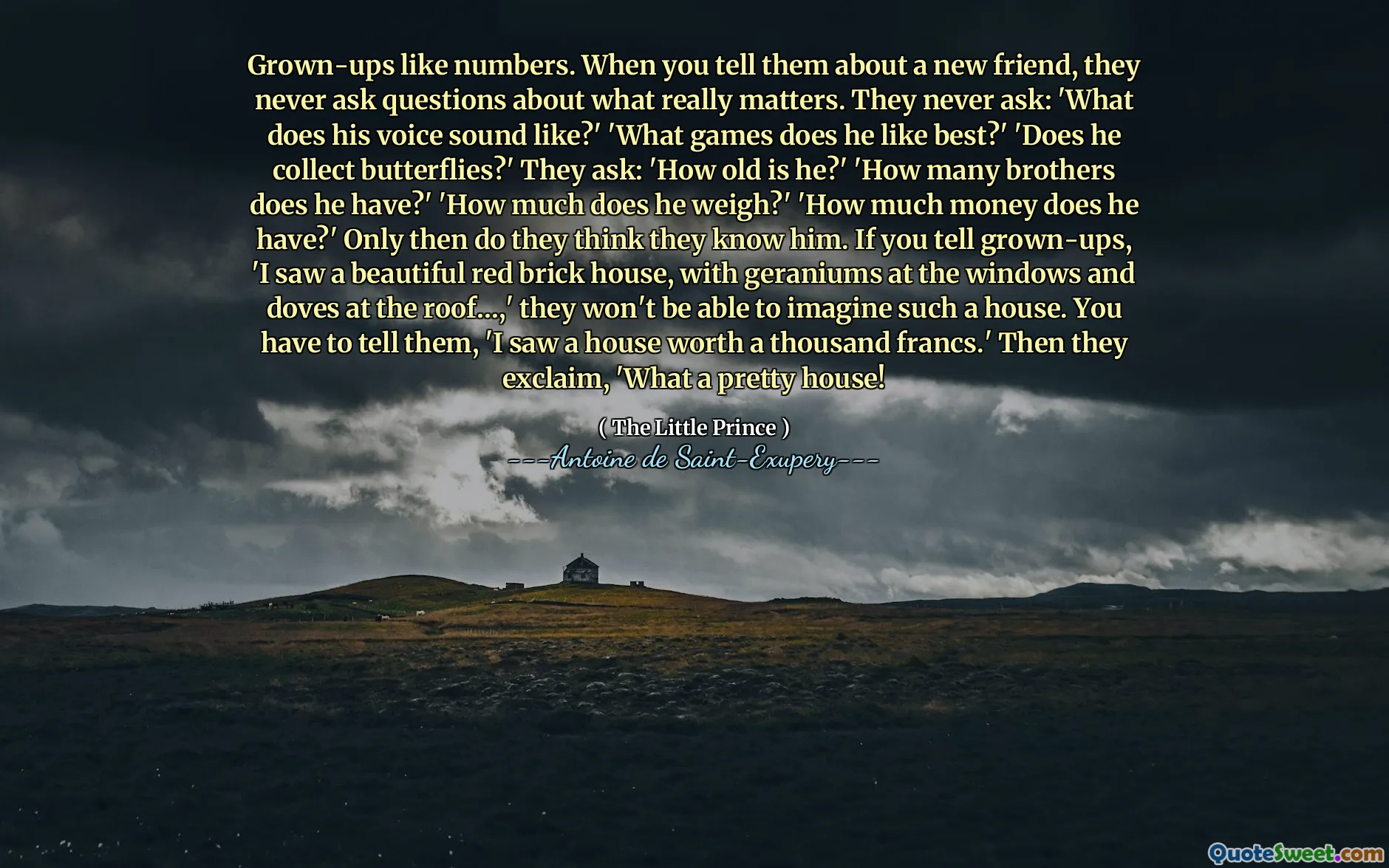
Grown-ups like numbers. When you tell them about a new friend, they never ask questions about what really matters. They never ask: 'What does his voice sound like?' 'What games does he like best?' 'Does he collect butterflies?' They ask: 'How old is he?' 'How many brothers does he have?' 'How much does he weigh?' 'How much money does he have?' Only then do they think they know him. If you tell grown-ups, 'I saw a beautiful red brick house, with geraniums at the windows and doves at the roof…,' they won't be able to imagine such a house. You have to tell them, 'I saw a house worth a thousand francs.' Then they exclaim, 'What a pretty house!
In "The Little Prince," Antoine de Saint-Exupéry illustrates the contrasting perspectives of children and adults on life. While children are curious about emotional and imaginative aspects such as a friend's personality or hobbies, adults tend to focus solely on quantifiable details like age or wealth. This highlights a significant difference in how people perceive and value relationships, shifting from meaningful connections to mere statistics.
The quote emphasizes how grown-ups often miss the essence of experiences, valuing numbers over imagination and feeling. Where children see beauty and uniqueness in a house through its characteristics, adults only appreciate it when given a monetary value. This reflects a broader critique of adult society's prioritization of materialism and superficial metrics over genuine understanding and appreciation of life’s intricacies.











